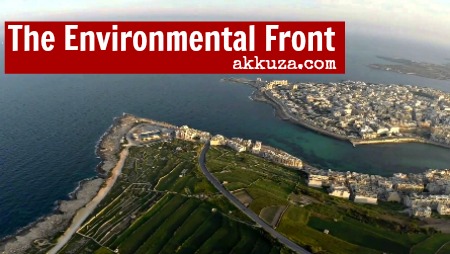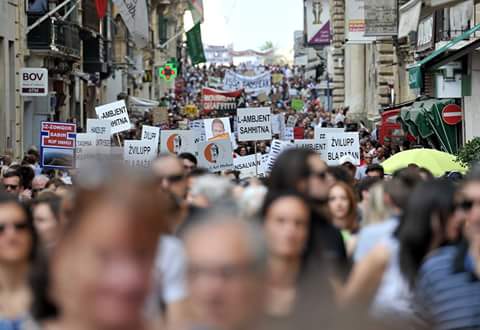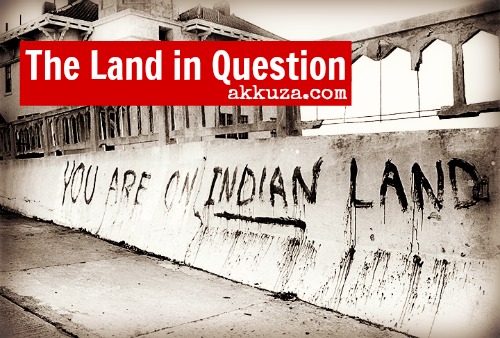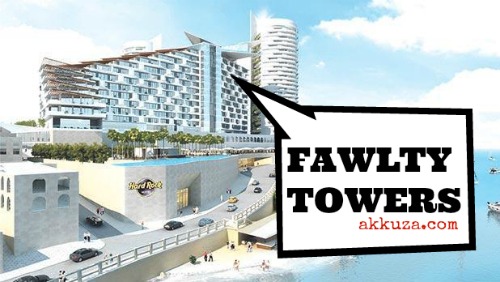
Last Saturday’s protest rally in Valletta by Front Harsien ODZ (FHODZ) is being hailed as an historic milestone in Maltese politics. Mike Briguglio listed his own reasons as to why this could be so in his post “Making history from Zonqor to Beyond – the Front phenomenon“. It is precisely the “Front” phenomenon that interests me the most – and this in the wider context of the “beyond” rather than in the limited context of Zonqor.
What is a “front” and how does it fit into the current political spectrum? What impact will it have in the long-term scenario of Maltese politics?
It was rather revealing to read descriptions of the FHODZ on the facebook pages in the run up to the protest. You began with a “front” which is a term that perforce implies battles and wars. A “front” implies engagement – a battle, a struggle. The term immediately recognises activism with intent to obtain direct results. This is not merely a foundation or an organisation representing a set of values – it had a target that necessarily implied direct engagement in the battle. The battlezone too was clearly defined – it was the protection of Malta’s politically defined zones that are outside development areas.
In their own descriptions of the front members quickly segued to the term “movement”. The description of the Front on its facebook page is quite clear in that respect : “Front Harsien ODZ is a citizens’ movement which welcomes support from all sectors of society. The goals of this Front are purely environmental.” The term movement has been monopolised for some time by the Taghna Lkoll wave of Maltese politics – the coalition of interests (and promises) that proved to be the right ticket to ride the wave of dissatisfaction with GonziPN. It is probably with this in mind that the name of the organisation carries the term “Front” and not “Moviment”. That such a choice would be made is quite fitting with the general attitude of the Frontists to stress their a-partisan element whenever they can.
Which brings me to the next defining point of the Front. Great pains were taken (and are still being taken) to stress that the Front is non-partisan – to the extent that some use the term non-political to describe its field of activity. In doing this the Front plays to the same sanitised collective utopic ideal that we have become used to of late when hearing speeches of the Taghna Lkoll camp (typical statements include “ma hemmx kuluri”, “ilkoll ahwa maltin”, “ma jimpurtax int min int u inti x’int”). In this utopia the collective baddie is the partisan politician and the saviour is the new style apolitical politician who supposedly has some form of national interest at heart based on some home-spun mythology or ideal.
The dynamic of political persuasion and participation as opted for by the Front is both necessary and counter-productive at the same time. On the one hand, the Maltese demos has now been fed the spin of “Politicians Do Evil” (and admittedly have had ample evidence smacked in their faces) for quite some time. This is why the Front had to provide a sanitised version of political activism. The Maltese “podemos” or CinqueStelle crowd could only be stirred into political action of some kind by being told that this is anything but political.
Having chosen that delicate road of politics with sanitary gloves and masks on the Front then had to engage with politicians because last we checked this was a working liberal democracy that has also got a role for popular pressure and lobbying. In order to get people on board this had to seem like a protest against all politicians for all the harm they caused and for all the harm they will cause. Even the church got its own dose of hand-slapping for daring to give its two-cents’ worth. The risk at that point was that the Front would be diluted by Pythonesque bickering related to who they where and what they wanted.
The holier-than-politicians attitude would provoke equally absurd reactions such as the infamous “Where were you? (fejn kontu?)” retort. Absurd might the retort be (and wholly ridiculous given the context) but it was a direct corollary of the need of the Front to define their goals in apolitical terms when every breath and step they took was steeped in politics of the finest kind. The very continuity guaranteed by the ever-present environmental activists no matter who was in government was in fact a guarantee of political perseverance and not of NGO oblivion. Which is why the Front was at its best when it could show a full curriculum of political activism as witnessed in the various Mike Briguglios and James Debonos. Their constant presence was as political as it could get – and a proof that the embracing of environmental values in politics is important: far from the ascetic crowd pooh-poohing politics with a big P.
“Politicians Protect Our Environment” read one of the banners at the hugely successful protest. Where does the Front go from there? What are its short-term goals? Are they enough? Muscat has toyed with the Zonqor ODZ as though it were another pawn in a huge chessboard to be moved at his whim and fancy. His latest comments post-protest are neither here nor there: labelling the Front as “extremist”, practically ordering the cancellation of a counter-protest (was it his to cancel?), speaking of a compromise that he apparently reached with himself to go ahead with partial destruction of the Zonqor area.
Is getting Muscat to keep his hands off Zonqor enough? When it comes to the opposition and its commitments, not a day goes by that the Front does not do its best to denigrate any attempt of the party in opposition to wipe clean its slate on environment and take on a new set of values that would be much more than Muscat’s compromise. Shouldn’t the Front be grasping this opportunity of reshaping the environmental and planning policy of one of the major parties as soon it has a chance? The snide remarks and lack of trust will get its members nowhere beyond their Warhol fifteen minutes of fame because when all is said and done and when the last poster is put away it is back to the bigger battle between two parties for the management of our nation and its heritage.
The way I see it, rather than pushing away the PN for its past errors, the Front should be embracing the goodwill of the party and getting it to commit pen on paper to a series of values. All this talk about not trusting politicians because “look what Joseph did once he got into power” is neither here nor there and politically naive. A failure to understand the dynamics of political representation is also a failure towards the people joining the movement with the intention of obtaining concrete results (excuse the unhappy pun).
My idea would be a charter on environment and planning that goes beyond building in ODZ and tackles head-on the environmental challenges for the future. A charter on sustainable development, on the use of current properties, on the preservation of ODZ and natural areas. A serious overall study of the values that should underpin our nation’s future both urban and countryside development. If all this were crystallised in a Charter then the Front’s real achievement would be getting all political parties to subscribe to it. To commit to it. In writing.
Sure you might remain cynical and claim that parties would do it for the votes but then again that is the whole dynamic of representative politics isn’t it? The Front’s role is to create civic aware citizens who are prepared to immediately hold the politicians to their promises. It’s role is to obtain clarity, its battle is to get the parties that represent the people to embrace this clarity and commitment. First in words then also in action.











